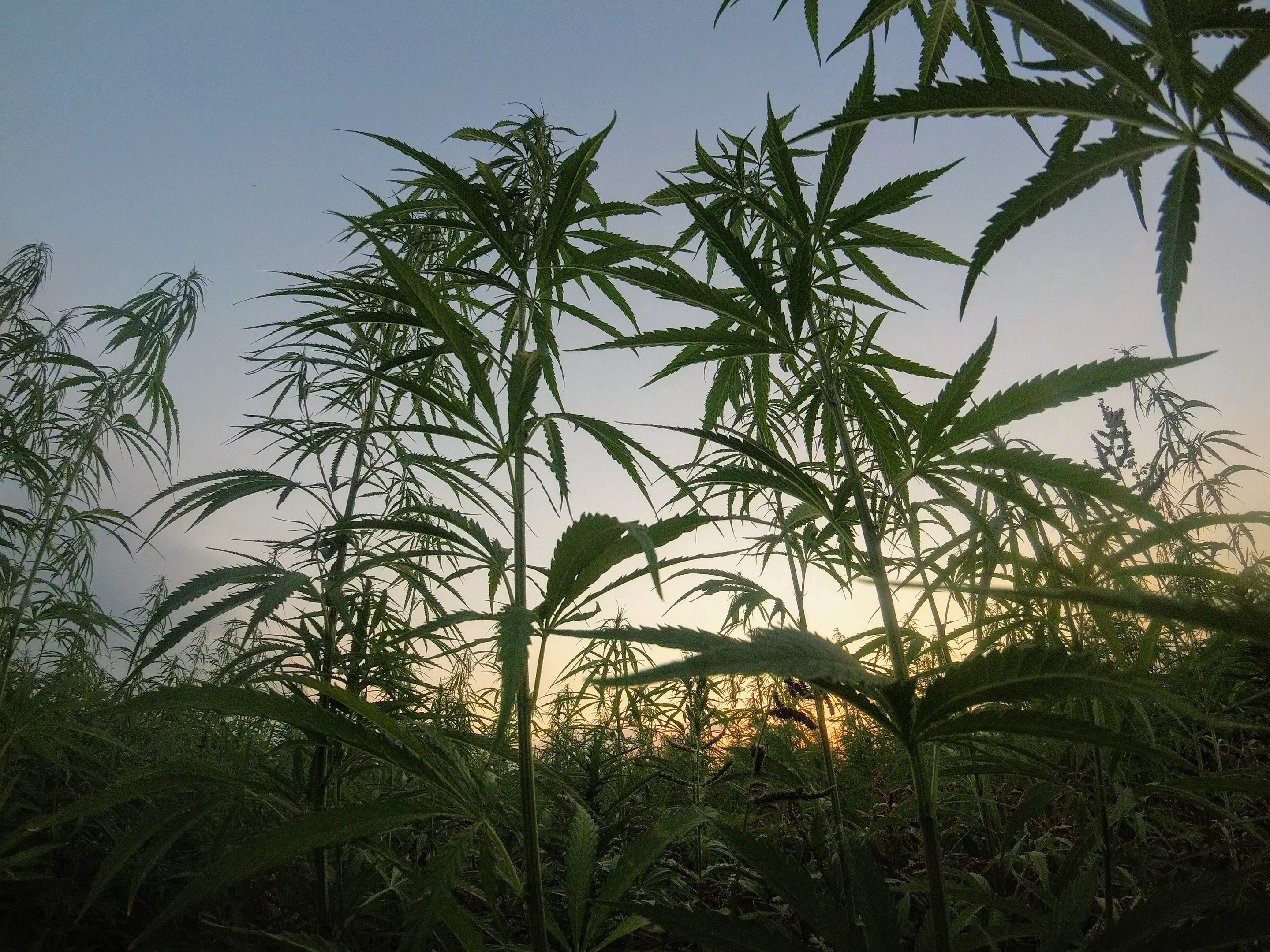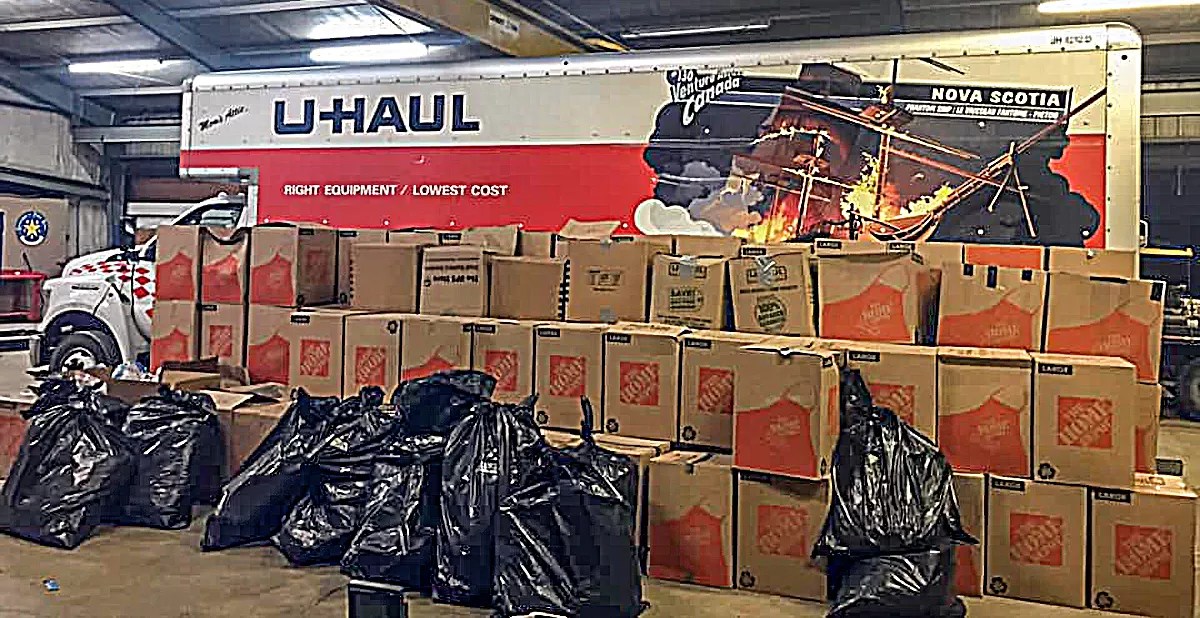

Audio By Carbonatix
In a desperate attempt to keep the failed drug war alive, police across the United States have been jailing innocent people for transporting CBD-rich hemp across state lines – even though hemp was legalized at the federal level in 2018.
Police say they are only acting on their training, which dictates that any green leafy substance must be seized and labeled as marijuana even if there is evidence to the contrary, such as certified documents included with the shipments that clearly state the product is legal hemp.
“It’s a complete lack of training,” says attorney Adam Tisdell, who recently represented a South Florida man who spent almost a month in jail after he was stopped while legally transporting a truckload of hemp. “These officers are not being trained in the new laws, and innocent people are going to jail and sitting there because they are participating in a legal market.”
Surfside resident Aneudy Gonzalez, age 39, was hired to transport 3,350 pounds of legal hemp from California to New York when he was pulled over in Texas this past December 5. A state trooper searched Gonzalez’s U-Haul truck and came across the hemp, which the cop immediately determined to be weed by its appearance and smell.
Tisdell, however, says Gonzalez had paperwork indicating otherwise.
“The driver had documentation showing it was hemp, and they just decided they were not going to believe him and arrested him,” Tisdell says. “He didn’t get to spend the holidays with his family because they said he was a danger to the community even though he had no priors and didn’t own any guns.”
Four days after the traffic stop – and without having tested the hemp for its THC content in a certified lab – the Texas Department of Public Safety, confident the arrest was lawful and valid, bragged about it on Facebook and sent a media release to local outlets.

The Texas Department of Public Safety posted this photo on Facebook last month, bragging about a huge pot bust that turned out to be legal hemp.
Photo by Texas Department of Public Safety
Despite testimony from a clueless DEA agent who admitted he had no knowledge about the federal and state laws regarding hemp, federal prosecutors were able to persuade a grand jury to indict Gonzalez on possession of marijuana with intent to deliver more than 1,000 kilos, which is punishable by at least ten years in prison.
According to court records, DEA agent Randy Mincher was under the impression that a cannabis plant had to contain less than 0.03 percent THC for it to be considered legal hemp. Anything above that, he testified, was considered marijuana and illegal. However, federal law sets the legal threshold at 0.3 percent, not 0.03 as Mincher testified. The hemp Gonzalez was transporting turned out to contain 0.2853 percent THC. Marijuana sold on the streets and in dispensaries averages between 15 and 22 percent THC.
Gonzalez was released last week after charges against him were dismissed. But he was hardly the first to have endured this ordeal and will likely not be the last. The following incidents took place in 2019:
- The New York City Police Department seized 106 pounds of legal hemp in November after a FedEx driver chose to deliver the shipment to an NYPD precinct instead of its destination, a CBD business. The NYPD congratulated itself on Twitter about how it intercepted “marijuana that was destined for our city streets” – only to have to return it several weeks later when it was proven to be legal hemp. The FedEx driver had picked up the hemp from a farm in Vermont and took it to a police station in that state, which determined it to be legal hemp. The driver then took it to the NYPD for a second opinion. The NYPD invited the owner to pick up his legal product and then arrested the owner’s brother when he attempted to retrieve it. The owner and his brother are preparing to sue.
- The Pawhuska Police Department in Oklahoma that January seized 18,000 pounds of legal hemp that was being transported from Kansas to Colorado, where CBD would be extracted from it. Four men were arrested for marijuana trafficking before all charges were dismissed in July.
- Idaho State Police seized 6,700 pounds of legal hemp that January and are refusing to return it to its owner despite lab reports having long proven the hemp to be legal. A truck driver arrested on felony trafficking charges ended up sentenced to 180 days in jail after accepting a plea deal for failing to provide proper trucking documentation. Shortly after the seizure, state police issued a media release saying “the trooper’s training and experience made him suspicious that the cargo was, in fact, marijuana, not industrial hemp.”
- The South Dakota Highway Patrol seized 292 pounds of legal hemp in July and arrested a man who was driving the hemp from Colorado to Minnesota, where CBD would be extracted from it for use in the commercial market. The hemp has been tested and shows only traces of THC, but prosecutors are proceeding with the case against the man because South Dakota is one of three states that have not legalized hemp. The seized hemp was valued at $36,000, but the CBD extracted from it would have been valued at $100,000. The driver’s next hearing is set for February. He remains out on bond.
- The Colorado State Patrol seized 162 pounds of legal hemp in May and arrested the woman who had been hired to drive it to Las Vegas. They slapped her with trafficking charges punishable by up to 30 years in prison and a $1 million fine. The charges were dismissed, and the hemp was returned in August after it was tested in a laboratory and proven to be legal.
In all of the above cases involving traffic stops, the arrests were made after police claimed they smelled marijuana, which gave them probable cause to search the vehicle. But hemp and marijuana are both cannabis plants identical in smell and appearance, which is why some police departments – including Miami-Dade – no longer allow officers to search a vehicle based on marijuana smell alone.
The only way to determine if a cannabis plant is hemp or marijuana is by testing it in a certified laboratory. The roadside field tests police use are now considered obsolete because they are designed to test only the presence of THC – even if it’s just in trace amounts, as would be the case for hemp. Drug-sniffing dogs are also being phased out because they are trained to detect only the smell of cannabis, which can be either hemp or marijuana.
“It’s a problem we’re going to have to fight out in the appellate courts,” Tisdell says. “Prior to the Farm Bill, if it smelled like marijuana, it was marijuana. It didn’t matter about the THC level. And the smell of marijuana allowed police to search your car.
“The problem now is the smell of cannabis doesn’t tell you anything. It can be legal cannabis, or it can be illegal cannabis – it smells exactly the same; it looks exactly the same.”